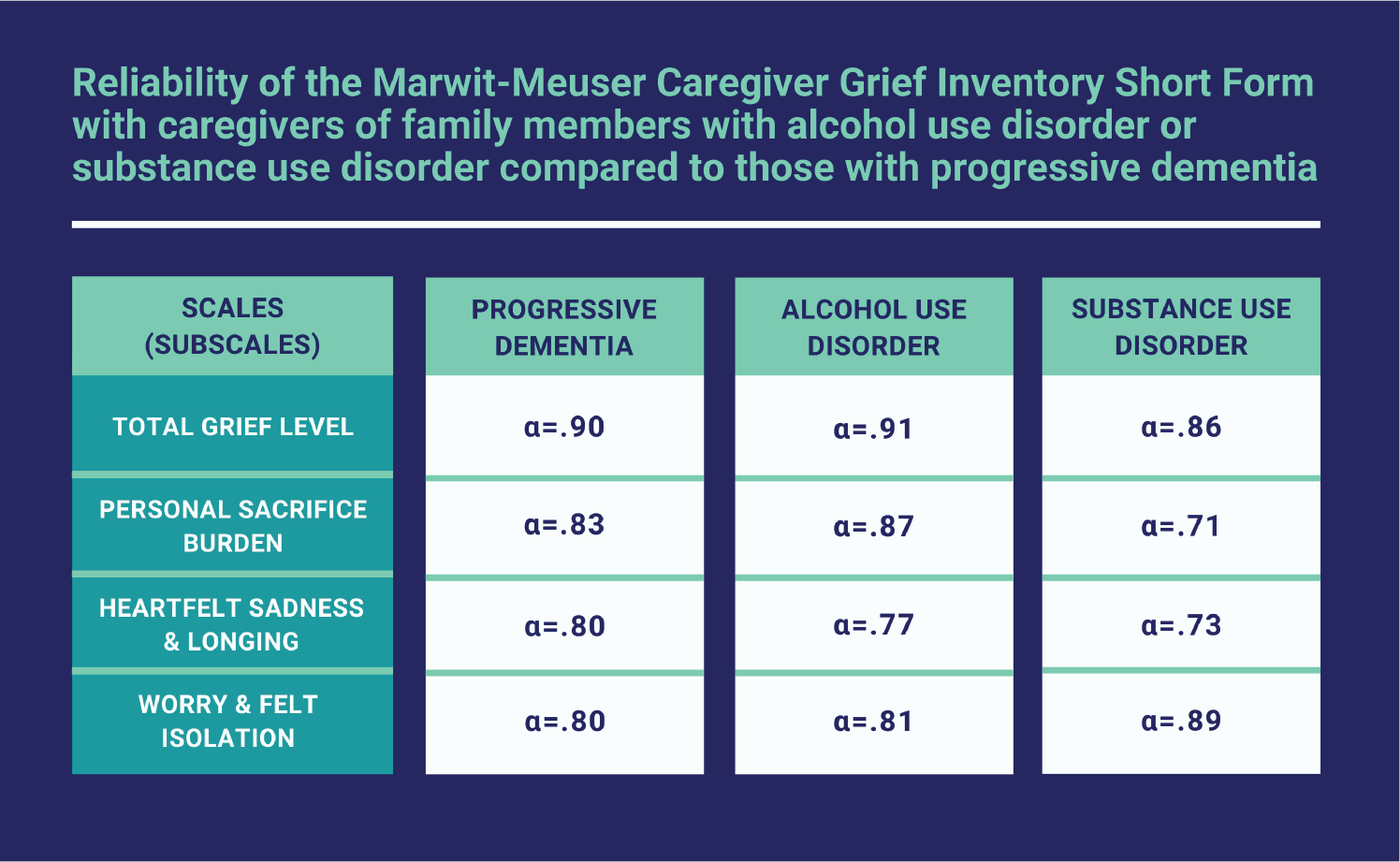The DRAM, Vol. 17(7) – Assessing grief in caregivers of family members with alcohol use disorder or substance use disorder
Grief is a natural reaction to loss. Common among the caregivers of family members with chronic disease, such as progressive dementia, grief is often felt even while the loved one is still living. Caregivers may experience grief from loss of personal freedom, familiar communication, their loved one’s mental capacities, social and recreational interaction, and control over life events. Alcohol use disorder (AUD) and substance use disorder (SUD) are chronic diseases that impact the individual and their family. It is likely that caregivers of family members with these disorders experience grief. This week, The DRAM reviews a study by DeAnne Priddis and Mary Beth Asbury that examined whether a grief assessment for caregivers of family members with progressive dementia applies to family caregivers of individuals with AUD or SUD.
What was the research question?
Does a grief assessment for caregivers of family members with progressive dementia apply to family caregivers of individuals with AUD or SUD?
What did the researchers do?
The Marwit-Meuser Caregiver Grief Inventory Short Form (MM-CGI-SF) measures pre-death, grief-related losses among caregivers of family members with progressive dementia. The researchers modified the MM-CGI-SF to be used with caregivers of family members with AUD or SUD. The 18-item assessment contains three subscales of six Likert scale questions each that measure caregiver (1) personal sacrifice burden, (2) heartfelt sadness and longing, and (3) worry and felt isolation.
The researchers used snowball sampling to recruit 175 adults with a living family member with hazardous alcohol use (n = 100) or substance use (n = 75). Participants completed the MM-CGI-SF and the researchers calculated total grief level and grief scores for each subscale. The researchers calculated Cronbach’s alpha for the full scale and each of the subscales for caregivers of family members with AUD or SUD and compared it to the original scale for caregivers of family members with progressive dementia. Cronbach’s alpha is a measure of internal consistency, which is a facet of reliability; it indicates the extent to which individual survey items “hang together” as intended. Poorly-worded items tend not to hang together. The researchers also calculated the means and standard deviations for the full scale and subscales.
What did they find?
When administered to AUD and SUD caregivers, the items within the full MM-CGI-SF scale and its three subscales show adequate internal consistency. More specifically, the full scale was found to have similar reliability in caregivers of family members with AUD (α = 0.91) and SUD (α = 0.89) to caregivers of family members with progressive dementia (α = 0.90) (see Figure). The means for each subscale were one standard deviation below the overall mean. According to the original scale’s creators, lower means may indicate positive adaptation to grief or grief suppression.
Figure. Cronbach’s alpha for the total scale and subscales for caregivers of family members with AUD or SUD compared to the original scale for caregivers of family members with progressive dementia. Cronbach’s alpha values range from 0 to 1. Values closer to 1 indicate higher reliability; values above 0.70 are considered good reliability. Adapted from Priddis and Asbury (2021). Click image to enlarge.
Why do these findings matter?
Grief can negatively impact a caregiver’s physical, social, emotional, and spiritual health and wellbeing. Findings from this study indicate that caregivers of family members with AUD or SUD experience grief and may need support, and that the MM-CGI-SF is an appropriate tool to measure grief among AUD or SUD caregivers. Mental health clinicians might consider utilizing the MM-CGI-SF to assess grief in this population and tailor treatment to address grief when necessary. Caregivers of family members with AUD or SUD might benefit from coping strategies and grief support groups. Lower scores may indicate good coping strategies but might also indicate grief suppression and psychological distress. Mental health clinicians should still have a conversation about grief with individuals with lower scores.
Every study has limitations. What are the limitations in this study?
Snowball sampling may result in sampling bias and a lack of representativeness in the sample.
For more information:
Family members and friends worried about a loved one’s alcohol or substance use can find understanding and support with Al-Anon, Nar-Anon, and Learn to Cope. The National Institute on Alcohol Abuse and Alcoholism offers tips and resources for people struggling with problem drinking. For additional drinking self-help tools, please visit the BASIS Addiction Resources page.
— Kira Landauer, MPH
What do you think? Please use the comment link below to provide feedback on this article.
